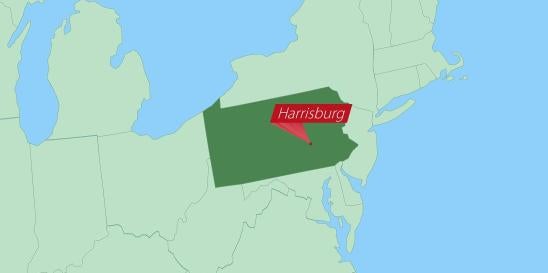On 10 April 2024, the Supreme Court of Pennsylvania heard argument in Herold v. Univ. of Pittsburgh,1 in which the Court is reviewing a 2023 Commonwealth Court decision holding that the exclusive remedy provision of the Pennsylvania Occupational Disease Act2 (ODA), permits a latent disease claimant to bring a civil action against their former employer if the claimant is time-barred from recovering under the ODA. For Pennsylvania employers, this case presents an opportunity to revisit the Supreme Court’s holding in Tooey v. AK Steel Corp.,3 in which the Court decided that Pennsylvania’s Worker’s Compensation Act4 (WCA) permitted civil claims for disability or death arising from occupationally related latent diseases when the death or disability occurred outside of the WCA’s jurisdictional limit of 300 weeks from the date of last employment in the trade or industry in which the individual was exposed.
In the 10 years since Tooey was decided, Pennsylvania employers have routinely faced civil actions for claims arising from occupationally related disease claims for death or disability occurring more than 300 weeks after the last date of employment. But the WCA and ODA are separate acts with different language, so the Herold case calls for a different legislative interpretation analysis than Tooey and presents a different basis for precluding civil actions for occupationally related latent disease claims.
In Herold, both the trial court and the Commonwealth Court followed the policy guidance of Tooey, and held that, like the WCA, the ODA permits civil actions against employers for death or disability attributable to certain latent diseases “occurring” over four years after the date of last employment.5 But in light of the language differences between the WCA and ODA, a differently composed Supreme Court has an opportunity to address Tooey-like arguments regarding issues that are unique to the ODA. Those issues include:
- Whether the ODA continues to apply to claims based on alleged exposures occurring after 30 June 1973, when the 1972 Amendments to the WCA took effect.
- Whether the plain language of the ODA is subject to a legislative interpretation analysis similar to the WCA analysis in Tooey.
- Whether the language of the ODA is sufficiently ambiguous to permit the court to apply the policy analysis of Tooey to the ODA.
In addition to the statutory analysis, the Supreme Court is also called upon to resolve defendant’s argument that the “doctrine of primary jurisdiction” requires the question of whether a claim is covered under the ODA to be decided in the first instance administratively by the Workers Compensation Board (Board). On 24 March 2021, in an unreported opinion, Judge Marilyn J. Horan of the United States District Court for the Western District of Pennsylvania ruled that the question of whether a latent disease injury claim falls within the scope of the ODA must be decided in the first instance administratively by the Board. Data v. Pa. Power Co.6 Accordingly, the court stayed that civil action pending its submission to the administrative process.
After approximately an hour of oral argument, the court gave no clear indication of a potential outcome. Nevertheless, the court’s questioning of counsel focused on several primary points/issues, including the following:
- Whether the “exclusivity” provision of the WCA applies to all workplace injuries occurring after 30 June1973.
- Whether the “exclusivity” provisions of both the ODA and the WDA should be limited to claims arising within the time frames for which those statutes offer compensation.
- Whether the Tooey court impermissibly usurped a legislative function by creating a judicial remedy that the legislature had foreclosed.
- Whether Article III, Section 18 of the Constitution of Pennsylvania, which permits the legislature to fix a remedy for workplace injuries, permits a court to deny any recovery to an employee who is injured in the workplace when the statutory time limitation for bringing the fixed-remedy claim has expired.
The court further explored the significance of the Pennsylvania legislature’s failure to amend the WCA since Tooey was decided. On one hand, justices suggested that the legislature’s failure to amend the WCA and/or ODA favors a narrow, employer-friendly statutory interpretation, because, if the legislature felt a need to alter the statute in light of Tooey, it had 10 years to do so. On the other hand, other justices suggested that the legislature’s inaction indicated a satisfaction with Tooey’s interpretation of the WCA, which the Court should honor, particularly in light of the Commonwealth Court’s strong reliance upon Tooey in this case.
As we noted in our prior update, Herold shares many parallels with Tooey. Given the differences in the statutory language between the ODA and WCA and the changes in the composition of the court since Tooey was decided, however, Herold provides the court with an opportunity to reestablish statutory exclusivity rules for workplace injury claims in Pennsylvania. At the same time, Herold also gives the court an opportunity to re-affirm the Tooey decision, and to extend it to claims under to ODA. Regardless of the outcome, however, the final word may ultimately rest with the Pennsylvania Legislature, which can amend the WCA and the ODA to address any areas of disagreement with the court’s decision.
1 22 WAP 2023.
2 77 P.S. § 1201-1603.
3 623 Pa. 60, 81 A.3d 851 (2013).
4 77 P.S. §§ 1-1041.4, 2501-2701.
5 291 A.3d at 501 (citing 77 P.S. §1401(c)).
6 No. 18-879, 2021 WL 1115876, *2 (U.S.D.C. W.D. Pa., March 24, 2020).



 i
i


